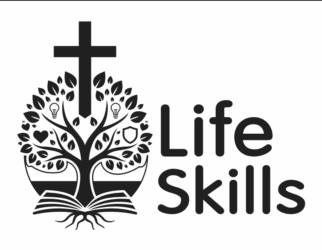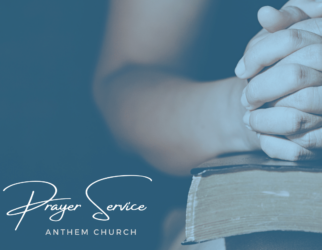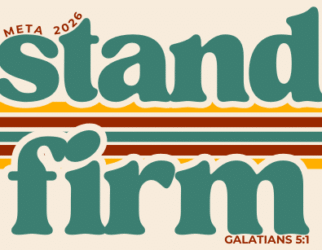
What We Believe
The Bible
The Bible is God’s Word. It was written by human authors under the guidance of the Holy Spirit. Scripture is a gift from God whereby He reveals Himself to us and reveals His plans for this world. In the pages of the Bible, God tells us everything we need to know about the things He wants us to know about.
God’s Word contains truth that heals our brokenness, answers our most important questions, and guides our lives in the right direction. Being God’s Word, the Bible is truth without error, completely trustworthy and authoritative in matters of life and faith.
2 Timothy 3:16-17; Psalm 19:7-13; Matthew 4:4; Hebrews 4:12-13
God: Sovereign and Triune
There is one and only one living and true God. He is the self-existing, all-powerful, all-knowing, ever-present, eternal, and unchanging God. He is Spirit and a personal Being. He alone is the Creator of everything, He rules the universe without rival, He is Supreme Judge over all, and He is the Redeemer of His people. He is infinite and holy, and the source of all that is good. He alone is worthy of all glory and to Him we owe our devotion, affection, and obedience.
There is but one God, yet He exists as Father, Son, and Holy Spirit. This is the mystery of the Trinity: One God in three Persons. Each member of the Godhead is distinct from the other, each is fully God, yet there is but one God.
God the Father
God the Father reigns with providential care over His universe and over the affairs of His creatures. He governs over time and space guiding history move in accordance to His purposes. It is God the Father who, out of love, sent His Son to earth that all who place their faith in Him may be forgiven of sin and adopted as His children to the praise of the glory of His grace.
1 Chronicles 29:10; John 17:1-5; Romans 1:7; 2 Corinthians 1:3;
Ephesians 1:3-12; 4:6
God the Son: Savior & Lord
Jesus Christ is God, the second member of the Holy Trinity, the eternal Son of God. At the time of the Father’s choosing, the Son was supernaturally conceived of the Holy Spirit and born of the Virgin Mary. Through the miracle of the Incarnation, Jesus was born into this world as fully God and fully man. Being God, Jesus was able to be our Savior, for only God can remove our sin. Being man, Jesus was qualified to be our representative (the 2nd Adam). During His time on earth, He was tempted in every way yet never sinned. In obedience to the Father’s will, Jesus sacrificed Himself on a cross. On the cross, He substituted Himself on our behalf, took our sin upon Himself, paid the price for our sin, and received the divine judgment we deserve. He died and was buried, but on the third day He rose from the dead demonstrating His power over sin and death. He ascended into heaven, now sits at the right hand of God the Father, and will one day return to judge the world and reign as King.
Matthew 1:18-25; John 1:1-4; Philippians 2:5-11; Colossians 1:13-22; Hebrews 1:1-4
God the Holy Spirit: Teacher & Counselor
The Holy Spirit is God, the third member of the Holy Trinity. He is co-equal with God the Father and God the Son. He is active in the hearts of individuals making us aware of truth, of sin, and of our need for Jesus Christ. At the moment a person places their faith in Christ, the Holy Spirit indwells them and grants unique spiritual gifts to be used for the health of the local church and for the advancement of the gospel. The Holy Spirit is our Teacher and Counselor providing spiritual discernment, wisdom, and empowerment for living life as a follower of Christ.
John 14:26; 15:26; 16:7-14; Acts 1:8; 1 Corinthians 3:16; 12:3-13; Ephesians 1:13-14
Humanity: Image bearers
What makes human beings unique in all of creation is that we alone were created in the image and likeness of God. As God’s personal image bearers, we have the honor and responsibility of reflecting His character and glory. As image bearers, we have an obligation to treat our fellow man with the dignity and love due to an image bearer of God regardless of gender, age, ethnicity, nationality, or socio-economic class.
The fact that humanity was made in the image of God explains why God chose to love us despite our rebellion and sin against Him.
Genesis 1:26-28; 9:6; 2 Corinthians 3:18; Psalm 139; Ephesians 4:21-24; Colossians 3:10
Sin: Our great problem
In the beginning man was innocent but our first forefather Adam sinned against God. He chose to disobey God’s instructions and through his sin death entered the world. This is known as the Fall. Because of Adam’s sin, we are born spiritually dead, having inherited a sinful status before God and a sinful disposition against God. Everyone born since Adam, with the exception of Jesus Christ, is guilty of disobeying God’s commands. The terrible news is that all sin (both willful and negligent) is an offense against our holy and all-powerful God. The frightening truth is that the consequence for any and all sin is death, condemnation, and eternal punishment, and no amount of good works on our behalf can reverse our dilemma.
The Gospel: Our great hope
The word gospel means “good news.” The good news is that forgiveness of sin and salvation from sin’s eternal consequences is available. God lovingly makes His grace available through His Son, Jesus Christ. Salvation is a free gift given by God to those who repent from their sin, trust in the life, death, and resurrection of Christ, and submit their lives under His Lordship.
Salvation is accomplished solely by the power of the Holy Spirit through the Word of God, and is in no way dependent upon human works of any Kind. Salvation was made possible through the sacrifice of Jesus on the cross, where He appeased the holy wrath of God by taking our punishment upon Himself. It is only through the cross that we can be made acceptable to God and fulfill the purpose for which He created us.
Salvation is by grace alone through faith alone in Christ alone.
Matthew 16:21-26; John 3:16; 14:6; Romans 6:23; 10:9-13;
Ephesians 2:4-9; Titus 3:4-7; Hebrews 10:10-14; 1 Peter 1:3-5
The Church: Our new family
At the moment of conversion, not only does the Holy Spirit bring a person into an eternal union with Christ but also brings that person into a permanent union with all fellow believers, past and present, in heaven and on earth. This is known as the universal church. The church is the body of Christ, the bride of Christ, the people of God, the temple of God, the family of God.
The majority of New Testament teaching about the church is in reference to local churches. A local church is an autonomous body of baptized believers, associated by covenant in the faith and the fellowship of the gospel, who are governed by God’s Word and led by Christ as the Head, who observe the Lord’s Supper, who help one another grow as followers of Jesus, who use their individual spiritual gifts and talents for the good of the church, and who together strive to further the gospel in this world.
Elders: Pastoral leadership
The Bible teaches that each local church is to be led by a plurality of elders. The term elder is synonymous with the term pastor. Pastors are men called by God and recognized by the members of their church to be godly in character and to be spiritually gifted for pastoral ministry.
Elders equip/disciple believers, lead the church, and defend the gospel.
Stewardship
God is the source of all blessings, earthly and spiritual. All that we have we owe to Him—our time, talents, gifts, and material possessions. According to the Scriptures, Christians have a binding stewardship before God in regards to these things. These things have been entrusted to be used for the sake of God’s glory, for the sake of the health of the local church, and for the sake of advancing the gospel. Having eternally benefited from the grace of God, Christians are to cheerfully, regularly, proportionately, systematically, and liberally contribute from their means in grateful obedience to God.
Baptism
Believer’s baptism is one of two ordinances given by Jesus to the church. In baptism, the believer is immersed in water in the name of the Father, the Son, and the Holy Spirit as a public demonstration of that person’s faith in Christ. Baptism is the ceremonial means by which a believer identifies with the death, burial, and resurrection of Christ. Participation in believer’s baptism is an act of obedience to God post conversion. The act itself does not result in salvation but indicates that salvation has already taken place. It is an external sign of an inward reality.
Lord’s Supper
The Lord’s Supper is the second ordinance given by Christ to the church. It is a celebration by which the local church memorializes the death of Christ. Also known as Communion, the Lord’s Supper serves as a reminder to Christians of the benefits received through Christ’s death and as a reminder to look forward expectably to His return. The bread and the wine/juice used during the ceremony are simply symbols that represent the sacrifice of Christ on our behalf. The Lord’s Supper foreshadows the great fellowship we will enjoy with God and with all of God’s people for all eternity. Unlike baptism, which is a one-time event in the life of a believer, the Lord’s Supper is meant to be observed repeatedly. Participation in the ceremony is limited 1) to those who have trusted in Christ and have professed Him as Lord and Savior, 2) to believers who are not living in deliberate sin having earnestly repented of it, and 3) to believers who are pursuing to live in peace with other believers fostering unity where there is division.











